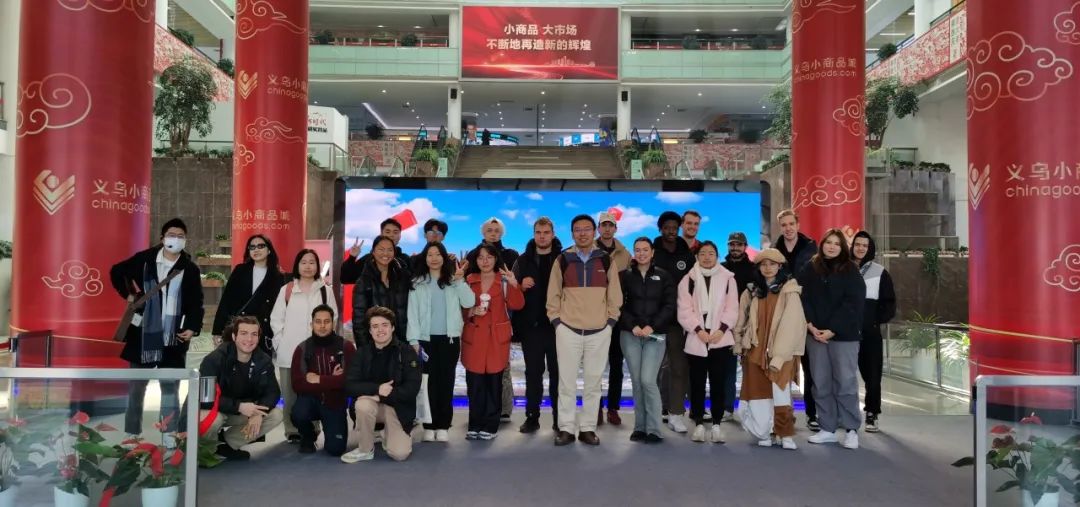
“I knew the market was large, but I didn’t realize just how big it actually is until I walked the endless paths, seeing what felt like an infinite number of items for purchase,” remarked Avia, a psychology and international relations major from the University of Pennsylvania, currently enriching her academic journey at Fudan’s School of Economics as an exchange student.
On December 1, a group of 23 students from Fudan’s School of Economics, comprising 18 international students, went on a field trip to Yiwu, Zhejiang Province, with Avia being among the participants.
Yiwu, an excellent example of China’s economic development and integration into the world economy, serves as a peephole for understanding how this has been achieved.
“To see is to believe – economics is as close to real life as we observe it. At Yiwu, one can truly feel the pulse of the global economy. It is such a dynamic place where things are constantly evolving on a daily basis,” said LIU Yu, associate professor at Fudan’s School of Economics, who was leading the field trip to Yiwu.
“If I had to use one word to describe the trip, I’d choose ‘dynamic’.” The market Avia referred to is the Yiwu small commodity trade market (or Yiwu International Trade City). In the morning, students explored selected sections of the market in teams, observing how deals are made between more than 75,000 sellers and buyers from over 230 countries and regions, time and time again.
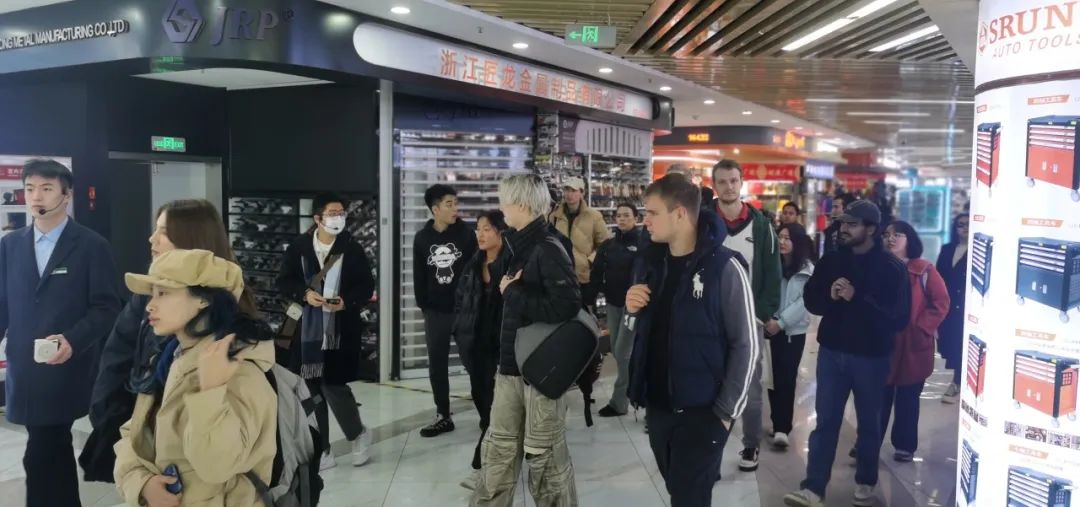 Checking out the Yiwu International Trade City
Checking out the Yiwu International Trade City
“It’s a microcosm of global commerce,” said Zach, an exchange student from the National University of Singapore (NUS). The exchange program between the National University of Singapore (NUS) and the School of Economics at Fudan University, in which Zach is enrolled, is entrepreneurship-oriented, focusing on innovation and startup companies. This gave Zach a deeper understanding of Yiwu, as he already has a certain level of real-world experience.
“I began to reflect on how all the vendors manage to differentiate themselves and thrive in such a competitive environment. It was particularly surprising to learn that the average store turnover rate is 1–1.5 years. This speaks not only to the reputation of Yiwu as a trade hub but also to the remarkable ability of these stores to adapt and survive,” Zach reflected.
According to José, an exchange student majoring in Data Science and Mathematics Engineering from Tecnológico de Monterrey, Mexico, the infrastructure in Yiwu was the most impressive aspect of the visit. “This logistics system facilitates the global distribution of all goods from here. It’s truly fascinating,” he said.
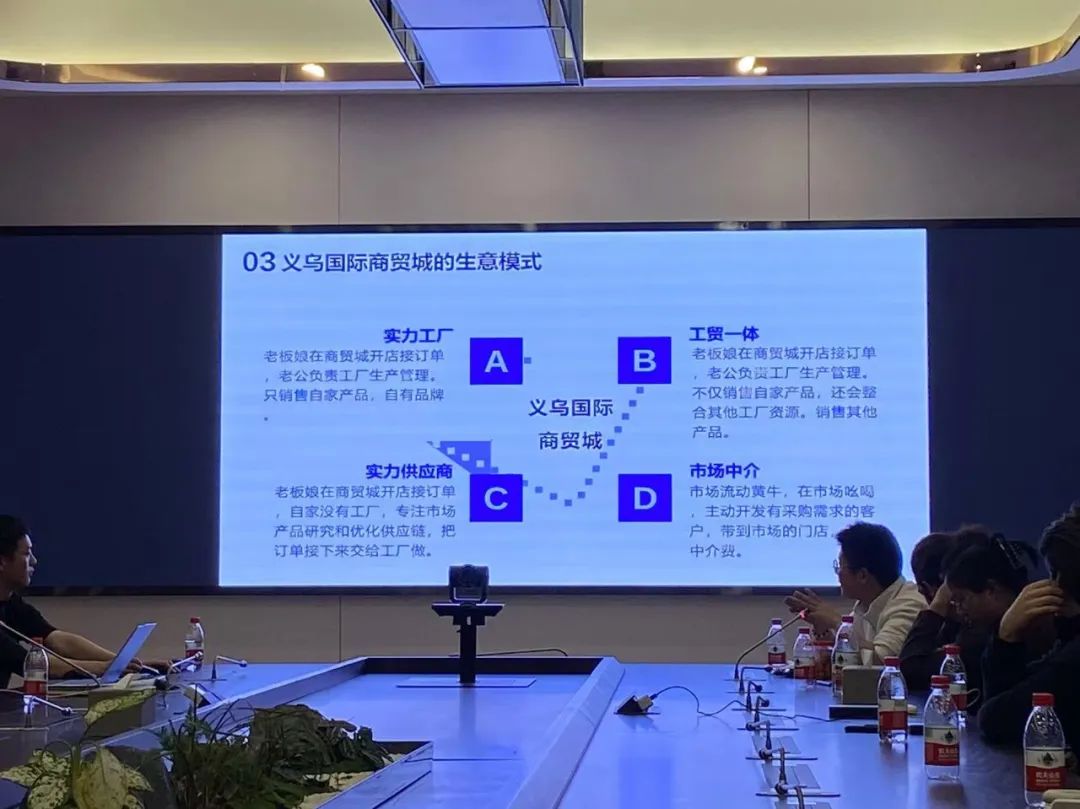 Listening to an introduction to the business model of the Yiwu International Trade City
Listening to an introduction to the business model of the Yiwu International Trade City
One of the hottest topics nowadays is trade uncertainty. How can Yiwu and China thrive under geopolitical uncertainty and trade frictions? ZHANG Ning, researcher at the Yiwu Research Institute and the Institute of Belt and Road & Global Governance at Fudan University, delivered an informative lecture on how Yiwu has developed into what it is today. He also discussed how the city addresses trade uncertainties by exploring new opportunities and trading with emerging markets.
“A key takeaway was the critical role played by close partnerships between local governments and businesses. The Belt and Road Initiative (BRI) was shown to be instrumental in linking Yiwu to key markets across Asia, Europe, and Africa, fostering trade connectivity,” Zach said. The government’s strategic infrastructure investments, such as establishing overseas warehouses, empower businesses to meet demand promptly and cost-effectively. “This demonstrates how coordinated efforts between the public and private sectors can create success stories like Yiwu,” Zach added.
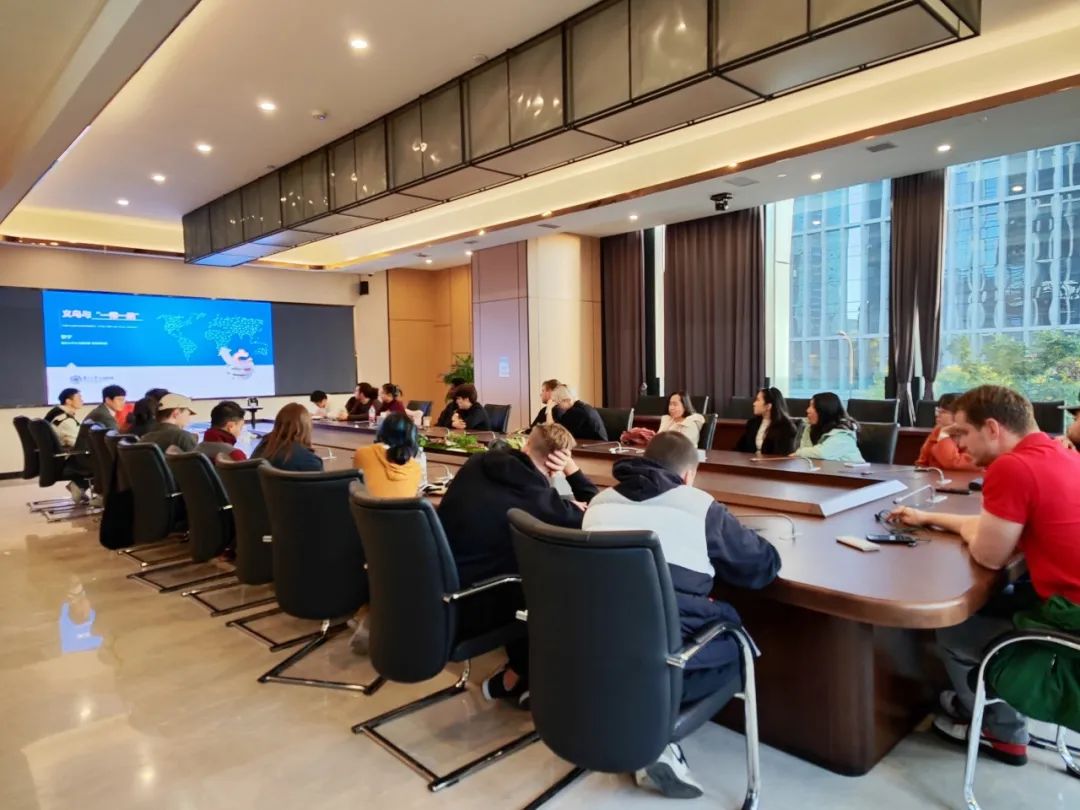 Learning about the role Yiwu plays in the BRI at Fudan’s Yiwu Research Institute
Learning about the role Yiwu plays in the BRI at Fudan’s Yiwu Research Institute
“The Belt and Road Initiative is far more comprehensive than I initially imagined,” said José. “Facing the challenges of trade frictions such as tariffs and market barriers, BRI provides the possibility of new connections and collaborations.”
Students also visited a local straw factory and listened to insights shared by staff at Alibaba, learning firsthand how local businesses have been developing and adapting alongside the city and China as a whole. “To me, the best part of the trip was meeting and connecting with those who are professionally engaged in international trading. This helped my understanding of how to find factories and products to sell, logistics, and other specifics,” said Mark, a freshman in the Undergraduate International Program in Economics (UIPE) from Russia.
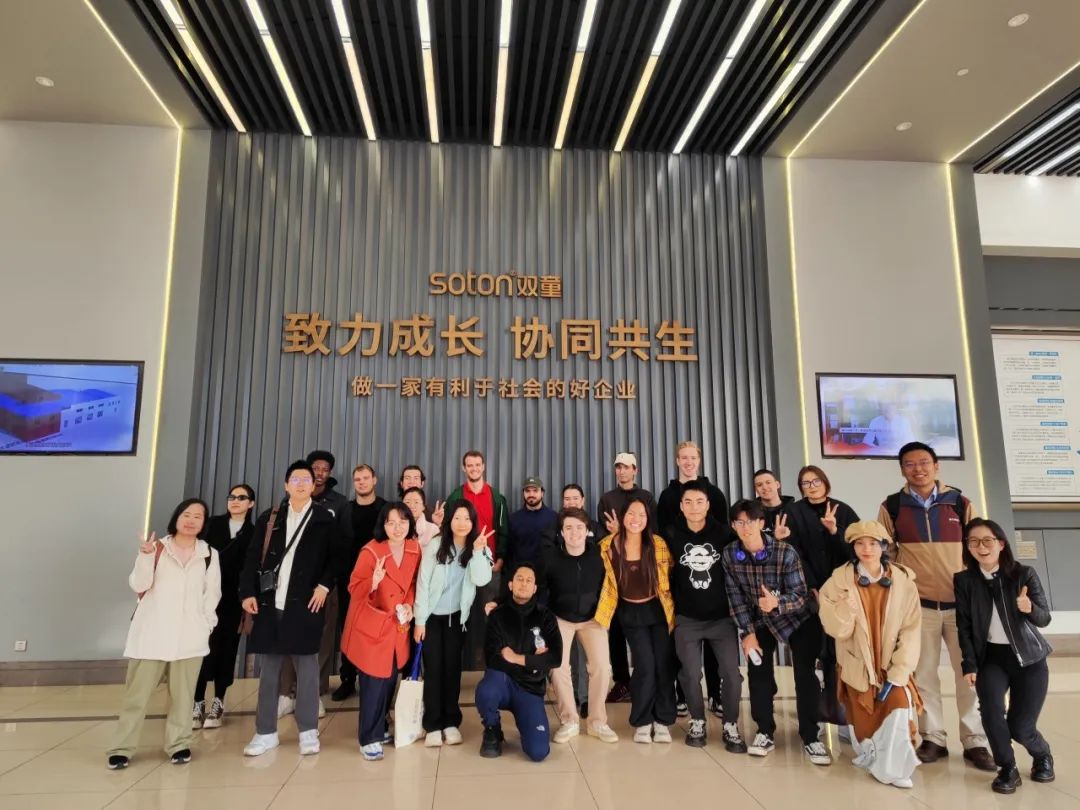 Visiting a local straw factory
Visiting a local straw factory
“The trip has been eye-opening! As a STEM major, I had no prior knowledge of this market’s existence,” said José. “It exposed me to aspects of global trade and commerce that I had not been aware of before.”
▍Presented by Fudan University Media Center
▍Writer: WANG Jingyang
▍Editor: WANG Mengqi, LI Yijie
▍Designer: CHEN Shuyang